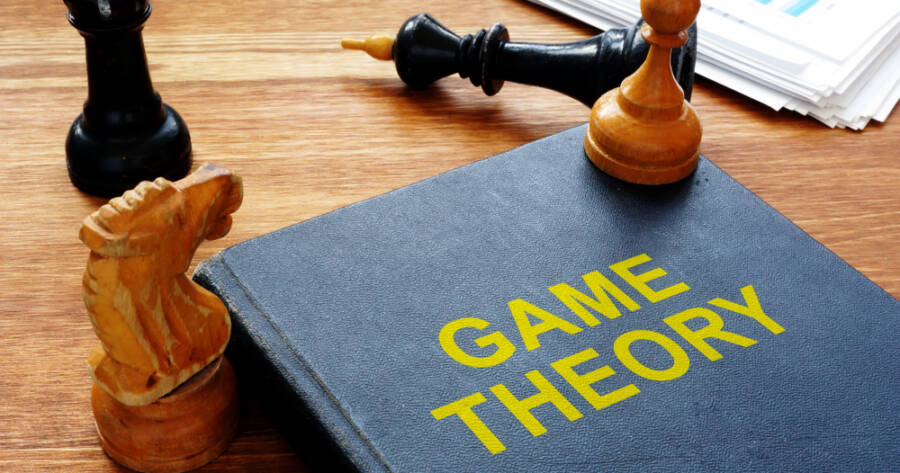Most people think of game theory as something reserved for economists, poker players, or corporate strategists. In reality, the same principles can shape everyday decisions — from salary talks to personal goals. At its core, game theory studies how people make choices when others’ actions affect the outcome. When applied to personal negotiation and goal setting, it helps individuals anticipate reactions, align incentives, and make decisions that maximize cooperation and long-term success.
Understanding Game Theory in Daily Life
Game theory might sound complex, but its logic appears everywhere: when you split chores with a partner, decide how to ask for a raise, or choose between competing priorities. The “game” simply refers to any situation where multiple people (or even multiple versions of yourself) interact with limited information and conflicting goals.
In these moments, decisions are not made in isolation — they’re shaped by expectations. For instance, if you believe a colleague will push harder in a meeting, you might hold back. That, in turn, influences how the colleague behaves. This loop of prediction and response defines strategic interaction.
The power of game theory lies in helping you step back and ask, “What does the other person want — and how does that affect my best move?” Seeing negotiation as a shared system rather than a competition often produces smarter, more sustainable results.
The Win-Win Strategy: Cooperation Over Competition
Many people treat negotiation as a zero-sum game — one side wins, the other loses. Game theory, however, shows that cooperation often leads to better outcomes for both. In the famous “Prisoner’s Dilemma,” two players gain the most when they trust and cooperate, but fear of betrayal often pushes them toward mutual loss.
This principle applies directly to real life. When you enter a negotiation — whether with a boss, a client, or a partner — assume the other person also wants a stable, fair outcome. If both sides focus on long-term trust rather than short-term advantage, the “game” becomes repeatable. Over time, cooperation compounds into greater benefits than any single victory could achieve.
In practice, cooperation means finding shared incentives. For example, rather than demanding a raise outright, you might propose a plan tied to measurable achievements. This reframes the conversation from conflict to collaboration — both parties win if you succeed.
Using Strategic Thinking to Set Better Goals
Game theory also applies when negotiating with yourself — the part of you that wants instant comfort versus the part that values long-term progress. This internal “game” explains why goal setting often fails. One side promises future effort; the other side, faced with temptation, defects.
To align these competing interests, design systems that make cooperation easier. Behavioral economists call this commitment strategy — creating rules that prevent future you from undermining present you. Setting automatic reminders, scheduling workouts with a friend, or making public commitments are all forms of game-theoretic self-negotiation.
Another useful tool is backward induction, which means planning by looking at the end first. Instead of setting vague resolutions, define the final outcome, then work backward to identify the sequence of steps that make success inevitable. This technique minimizes uncertainty and clarifies how today’s choices affect tomorrow’s results.
Information Asymmetry and the Power of Preparation
In every negotiation, one side often knows more than the other. Game theory calls this information asymmetry. The side with better information — whether about costs, goals, or alternatives — gains leverage.
Preparation helps balance that gap. Before entering a discussion, research the other party’s priorities, constraints, and likely alternatives. Understanding their position allows you to predict their “payoff matrix,” or how different outcomes affect their satisfaction. With that insight, you can frame proposals that align with their self-interest while advancing your own goals.
For example, if you know your manager values team stability over individual raises, propose a role change that benefits the group while improving your position. When both incentives align, negotiation becomes easier, faster, and more cooperative.
Mixed Strategies: Adapting to Uncertain Outcomes
Not every negotiation or goal has predictable results. Sometimes, being too consistent makes you easy to read. Game theory introduces the concept of mixed strategies — varying your approach to stay flexible in uncertain situations.
In personal terms, this means balancing firmness with adaptability. You might decide in advance which points are non-negotiable and which you can adjust. By blending consistency and openness, you encourage mutual respect while avoiding rigid standoffs.
Flexibility also applies to personal goals. Rather than committing to a single rigid plan, allow room for adaptation. The goal remains fixed, but the route can shift as conditions change. This makes you resilient — the most strategic position in any long game.
Playing the Long Game of Life
Game theory reminds us that life is not a series of isolated choices but a continuous web of interactions. Success in negotiation and goal setting depends less on aggression and more on anticipation — understanding how your actions shape others’ responses.
When you apply these ideas thoughtfully, you stop reacting and start strategizing. Every discussion, project, or personal goal becomes a cooperative puzzle rather than a conflict. In the long run, the smartest “players” are not the ones who win every round, but those who build systems of trust, alignment, and shared growth.

